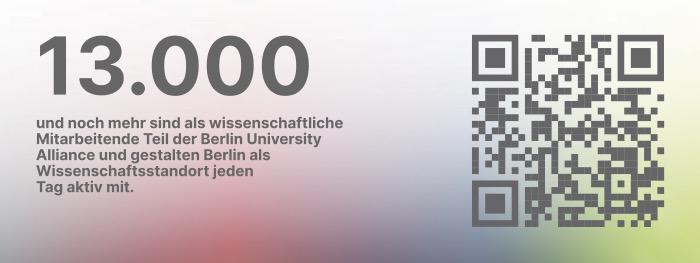The 100 most important Heads in Berlin Academia. Episode 5: They are searching for the future
Oct 04, 2024
These scientists shed light on algorithms, enable quantum chips, or search for dark matter. And in doing so, they advance the tech scene.
In the fields of AI and quantum research, the Berlin area can hold its own internationally. However, such future technologies demand a lot from society – all the better when someone can explain them as well.
Dr. Vera Schmitt (Technische Universität Berlin): She is head of the research group XplaiNLP at the Quality and Usability Lab of TU Berlin. Her focus is on combating disinformation and developing trustworthy AI methods. In projects such as “news-polygraph,” which supports journalists in verifying text, audio, and images, or “VeraXtract,” which collects and analyzes disinformation narratives, she contributes her expertise in explainable AI and language processing.
Prof. Dr. Tim Schröder (Humboldt-Universität zu Berlin): He leads a research group working on the foundations of the quantum internet. Using special semiconductor materials, he investigates applications for communication and information processing, for example through entangled quantum states in diamond. His work and that of his students have received multiple awards. In addition, as a group leader at the Ferdinand-Braun-Institut, he secured millions in research funding for Berlin.
Prof. Dr. Piet Brouwer and Prof. Dr. Felix von Oppen (Freie Universität Berlin): At Freie Universität Berlin, they are pushing the boundaries of the quantum world: Piet Brouwer and Felix von Oppen are developing qubits, the building blocks of tomorrow’s quantum computers. Their research bridges theory and experiment and brings us a step closer to powerful, stable quantum machines.
Dr. Stefan Chmiela (Technische Universität Berlin): He leads the research group “Machine Learning for Molecular Simulations in Quantum Chemistry” at TU Berlin. With innovative AI methods, he simulates chemical reactions at the atomic level, enabling deeper insights into molecular processes. His work helps make industrial processes more resource-efficient and shapes the chemistry of the future.
Prof. Dr. Markus Krutzik (Humboldt-Universität zu Berlin): As a newly appointed professor for quantum sensing, he heads the Joint Lab Integrated Quantum Sensors at Humboldt-Universität zu Berlin and the Ferdinand-Braun-Institut. With his team, he is developing the next generation of chip-based quantum sensors for applications in frequency metrology, time measurement, and field sensing – both on Earth and in space. His research enables extremely precise measurements and helps secure Germany’s and Europe’s technological sovereignty.
Prof. Dr. Eva Unger (Humboldt-Universität zu Berlin): Her research focuses on developing scalable processes for producing high-efficiency perovskite solar cells. She employs innovative approaches such as inkjet printing and slot-die coating to realize transparent tandem solar cells for integration into buildings. She emphasizes the transfer and impact of her work and was awarded the Helmholtz Impact Award for it.
Prof. Dr. Markus Ralser (Charité – Universitätsmedizin Berlin): Since 2019, he has been director of the Institute of Biochemistry at Charité. As an internationally recognized expert in cellular metabolism and systems biology, he investigates the dynamics of cellular networks and develops analytical methods to answer complex biological questions. His work provides fundamental insights into central carbon and amino acid metabolism and thus significantly advances our understanding of the molecular foundations of health and disease.
Prof. Dr. Çiğdem İşsever (Humboldt-Universität zu Berlin): She is Professor of Experimental High-Energy Physics at Humboldt-Universität Berlin and senior scientist at DESY in Zeuthen. As a member of the ATLAS collaboration at CERN, she researches the properties of the Higgs boson and the decoding of dark matter. With her expertise in jet reconstruction and calibration, she makes a crucial contribution to advancing particle physics – and, even more importantly, she communicates her research excellently, thereby fostering dialogue between science and society.
They were all featured today in Tagesspiegel (04.10.2025) as part of the series “The 100 Most Important Minds in Science.” Mehr im Tagesspiegel (T+).

